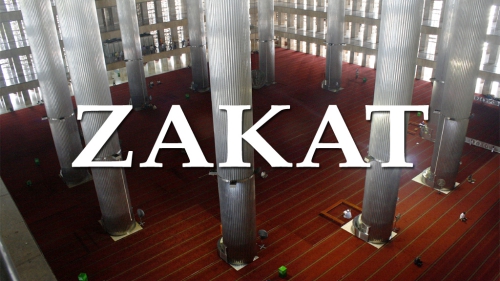Searching for a joyous Ramadan in Gaza

Shadi el-Helo sat outside his frozen chicken store at al-Zawya market in downtown Gaza, counting how many customers had come during the past few days, when people were supposed to prepare for the fasting month of Ramadan.
"I only had five or six customers Friday morning, while in the past, I could receive dozens in a couple of hours," said el-Helo. "It seems that preparations for Ramadan this year are nil."
"People's pockets are empty," he said, adding that it indicates the economic crisis has overpowered the territory.
Like el-Helo, dozens of vendors stood at the entrances of their stores, where the commodities are almost as scarce as shoppers, and the prices have gone so high that most people can no longer afford them.
Israel has imposed a blockade on Gaza Strip since the enclave rulers of Islamic Hamas movement kidnapped the Israeli soldier Gilad Shalit in June 2006, and further tightened it after the Islamic movement seized control of the enclave in June 2007.
The Jewish state said it would not lift the blockade unless Shalit is released and Gaza militants have agreed on a long-term ceasefire.
El-Helo said that frozen chicken is now sold at 25 shekels (about 10 U.S. dollars) a kilogram, three times the price two years ago.
"We cannot work properly, and life is getting worse," he signed, while taking some of his frozen chicken out to the entrance of the shop to catch more customers' eyes.
"I have to struggle to sell my goods to people," el-Helo said, "they are all weakened by the siege, poverty and unemployment."
Gaza-based human rights groups said that the rates of poverty and unemployment had mounted, since Israel sealed off all the commercial crossings on its borders with the Gaza Strip in June 2007.
 |
Most of Arab countries will start observing the Muslim holy month of Ramadan on Saturday, which falls on the ninth month of Muslim calendar each year. During Ramadan, Muslim are supposed to stay away from food, drink and even smoking from dawn until dusk.
But after sunset, people can enjoy food at their lantern-decorated homes, while affluent families put out food to feast the poor. So the month of Ramadan is also regarded as a festive period by Muslims.
In Gaza, however, people find it hard to pursue the traditional happy and benevolent atmosphere, or even to maintain a life with dignity.
Hatem Oweida, senior official in the de facto Hamas-ruled Ministry of Finance said that Gaza Strip markets are suffering from a severe lack of commodities, "especially those which are considered necessities for Ramadan."
"There are not enough stationery available as well, which is a big problem as the new school-year will soon begin in September," he added.
Chief of Gaza Chamber of Commerce Mahmoud al-Yazji told Xinhua that "prices reached the highest level this month due to shortage of necessities for Ramadan, usually a good season to flourish the economy."
He said that his department had delivered letters to international organizations, "urging them to exert pressure on Israel to ease the siege and let in more goods and products the Gaza Strip population need during Ramadan."
"The merchants and businessmen suffered great losses this year due to the tight siege," said al-Yazji.
In a toy store in Gaza City, Abu Sami, a 44-year-old Gaza resident, and his wife are trying to persuade the store keeper to lower the price of a medium-sized Ramadan lantern, worth at 30 shekels. It would have been sold at half the price two years ago.
Those lanterns are made in Egypt and then smuggled into the Gaza Strip through tunnels under the borders.
Thousands of tunnels were dug under the border between the Gaza Strip and Egypt, where Gazans smuggle various kinds of products from Egypt into Gaza.
"I can't imagine our children celebrate Ramadan without lighting up lanterns in the evenings," said Om Sami, the wife. "Life in Gaza is so hard now and we really don't know where to go or what to do."
To address the difficulties of living the Gaza Strip population faced, UNRWA (United Nations for Relief and Work Agency) decided to launch a food campaign during Ramadan with a cost of 181 million U.S. dollars.
"UNRWA would receive food supplies from the United Arab Emirates, Saudi Arabia and Kuwait," said Adnan Abu Hasna, UNRWA spokesman in the Gaza Strip, adding that "the food would be distributed to all Palestinian refugees."
However, there are still a few people in Gaza who can afford abundant food and some charity during Ramadan.
Hamdi Sheikh Ali, a 45-year-old employee, who works for an international NGO (Non-governmental Organization) with a monthly income of more than 2,000 U.S. dollars said, he planned to buy a lamb and offer it to the poor families.
"I will have a butcher to come to slaughter it at the gate of my home on Sunday, and then distribute the meat in one-kilogram bags to my poor neighbors," said Ali.
Ali said a 50-kilogram sheep, usually smuggled from Egypt, is sold for 150 U.S. dollars in Gaza. But he is quite happy that he could afford it and provide his wife and three children an opportunity to watch the ritual of sheep slaughtering.
"I do it to win the blessing of Allah (God) for my family," said Ali, "but I will not buy other luxuries to show off my wealth during Ramadan."
Saud Abu Ramadan & Emad Drimly write for the Xinhua News Agency
August 22, 2009
http://news.xinhuanet.com/english/2009-08/22/content_11927391.htm

















